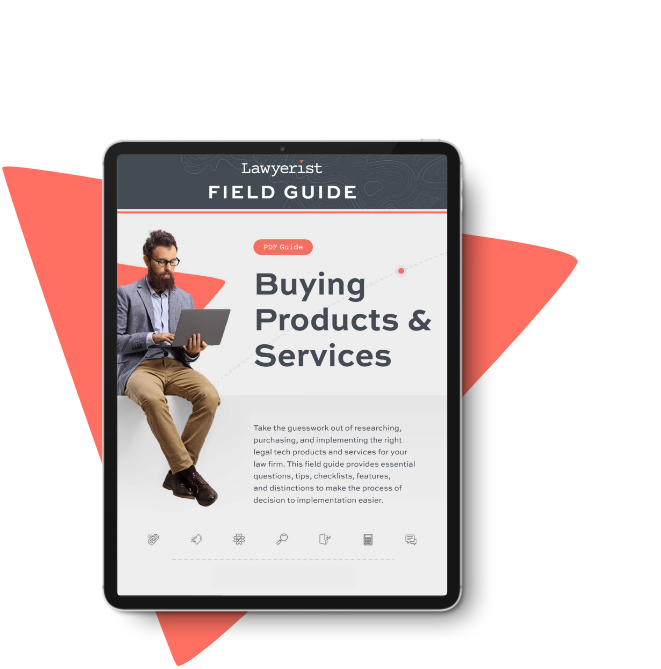Amicus Attorney Review: Law Practice Management Software

Lawyerist Rating for Amicus
Rating Breakdown
Our Rating: 2.8/5
Our rating is based on our subjective judgment. Use our resources—including our rating and community ratings and reviews—to find the best fit for your firm.
Community Rating: 2/5 (based on 3 ratings)
The community rating is based on the average of the community reviews below.
Composite Rating: 2.5/5
The composite rating is a weighted average of our rating and the community ratings below.
2.5/5
What is Amicus Attorney?
Amicus Attorney is a Law Practice Management Software (LPMS) platform that has been around for a long time. Along with CARET Legal, AbacusLaw and Amicus Cloud, it is one of a few LPMS products offered by CARET. Although it can be cloud-based, it is not accessible through a browser. Which makes it a hybrid solution. As such, it is a local application (run directly on your computer, tablet, or phone) who’s data can be stored at your office (on-premises), or in a private cloud.
Starting Cost: custom
- On-premises Option
- Timekeeping & Billing
- Document Automation
- Complex Initial Set-up
- Not for Solos
- Not Cloud-based
Amicus Attorney Review: Law Practice Management Software Features
Customer Experience & Support
/5
Price & Value
/5
Security
/5
Innovation & Future-Proofing
/5



good interface, outdated, not SMB friendly
AA’s clear advantage is the interface. It makes more sense than that of Clio and PracticePanther, the two competitors we have explored actively. My staff is loathe to move away from AA because we can see AA’s layout for onscreen forms is better.
However, that’s about where I would stop for the positives when compared to modern day competitors. AA is becoming so out-of-date, and the business model so unfriendly for SMB.
– AA runs on a Windows computer dedicated to it at your office. There are frequent problems with MS-SQL that require a user with IT skills to troubleshoot. If AA goes down over a weekend, you either need to remote into the server or physically go into the office to reboot it. This is not like a modern day cloud solution, where the company maintains the software.
– The user software is basically a proprietary browser/interface on your computer for viewing AA SQL database. However, it only runs on Windows. It can’t be run on a Mac. There is a web version to access your AA database remotely but it has only a limited subset of functions; you’ll want all your employees to be locked into Windows.
– Also, AA’s user software doesn’t have scalable font size. On a computer with a super high display resolution, the AA font is too small to be readable. You must use a lower resolution like on an older computer.
– It doesn’t run on an iPad or Android device. The makers of AA have sort of made apps for iOS/Android, but they are quite poor, IMHO.
– Inserting merge fields into a Word or WordPerfect document is a bear! It involves installing macros and using a picklist.
– AA doesn’t allow you to export any data, at all. Suppose you want cull a list of contacts in your zip code to send them an email blast – you can see them on the screen, but you cannot output that data to create a specialized email/mailing list. This inability to export data easily seems designed to bar people from getting their data out of AA to transition to another program.
– Because of the way AA integrates with SQL, there is no native report writer. Only the most advanced computer user could ever hope to write a report. The AA company’s owner is happy to do it for you, at consulting rates/hour.
– Can you make custom variables and screens for entering data? Yes, but it’s an all-day project.
– The price of AA includes features that most small firms do not need, like integrated credit card charging, and portals for clients to access the data.
– The contracts are three years in duration. You can add a user and pay for that — but you can never reduce. So, if you start with X employees and decide to reduce by 1 person — you’ll be paying for that lost employee’s AA license for the balance of three years, as there is no cancellation.
In summary, this was a great that still runs reliably, but it is now past its prime. There are newer, more nimble competitors to consider.
Tech help
Great features, but a little out of date.